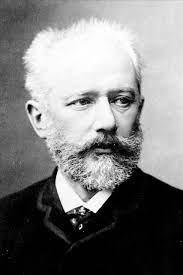You are here
Charm and Passion
Pyotr Ilyich Tchaikovsky was born on May 7, 1840, in Votkinsk, a small town in Vyatka Governorate within the Russian Empire. He had five brothers and one sister, with whom he was very close. He was initially educated for a career as a civil servant. Still, when the opportunity to study music arose, he took full advantage and entered the newly formed Saint Petersburg Conservatory, graduating in 1865.
A very well-known composer of the Romantic Era, Tchaikovsky wrote some of the most popular concert and theatrical music in the classical repertoire, including the ballets Swan Lake and The Nutcracker, his "1812 Overture," a splendid violin concerto, the Romeo and Juliet Fantasy Overture, the opera Eugene Onegin, and six symphonies, the final three of which are significant contributions to the orchestral canon and are frequently performed.
Tchaikovsky experienced considerable turmoil in his personal life, including a short-lived, disastrous marriage. Fittingly, his music often displays a wide emotional range, from salon works to grand symphonies.
Tchaikovsky's Symphony No. 6, known as "Pathétique," is his final completed symphony. Tchaikovsky's brother gave the title of the piece, and it was intended to mean "passionate" rather than "pathetic," as it was mistranslated. The symphony was written in a small house in Klin, Russia, in August 1893. The premiere was met with great appreciation. Tchaikovsky's brother Modest wrote: "There was applause and the composer was recalled, but with more enthusiasm than on previous occasions.”
The work is deeply personal and emotionally charged with feelings of despair, longing, and poignant beauty. Its four movements feature a graceful dance, a vibrant march, and a somber, collapsing finale, reflecting its composer's inner turmoil and pushing the boundaries of traditional symphonic form. The symphony ends with fading silence, instead of triumph.
In a letter to Grand Duke Konstantin Konstantinovich of Russia (a grandson of Emperor Nicholas), Tchaikovsky stated: “Without exaggeration, I have put my whole soul into this symphony, and I hope your highness will approve of it.”
